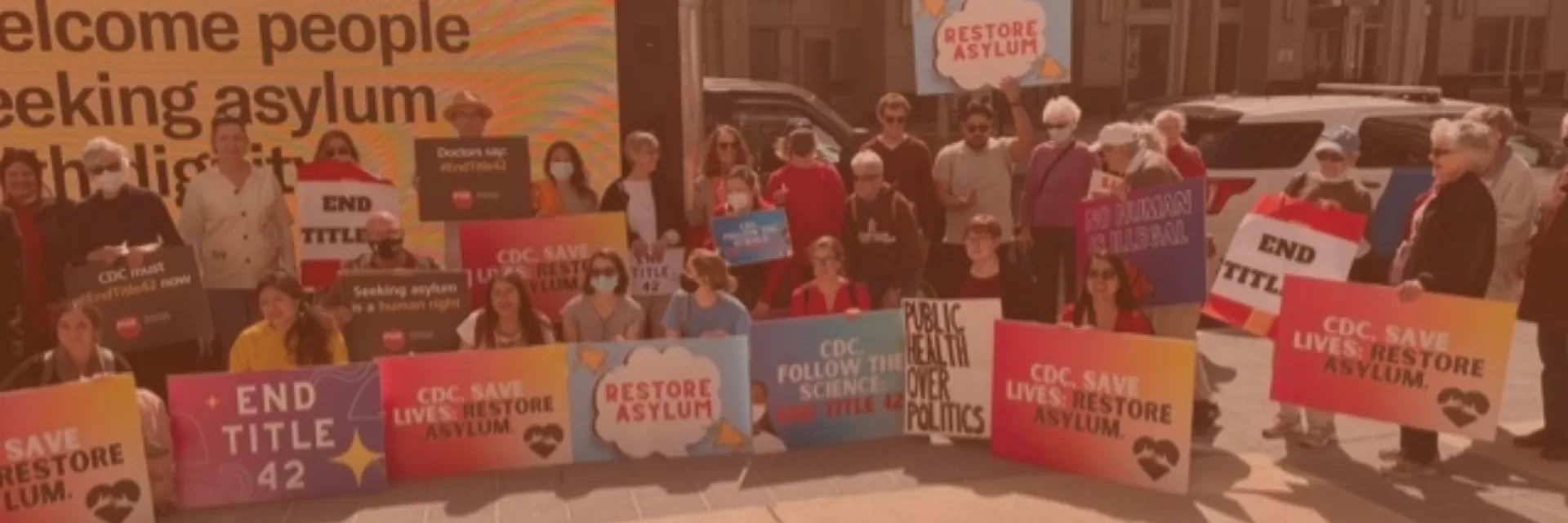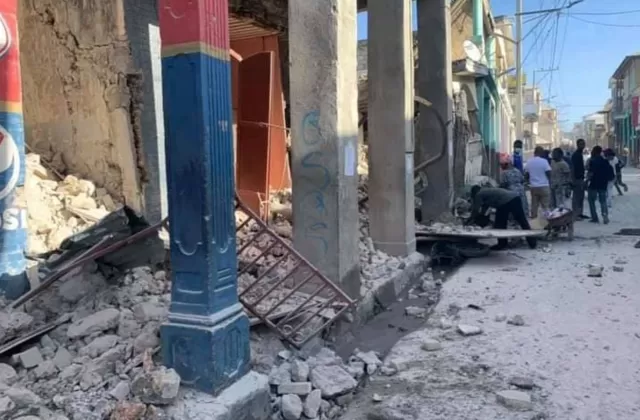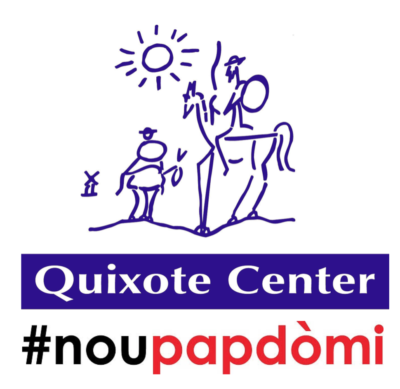Quixote Center works to defend the human rights and dignity of the most vulnerable by influencing U.S. foreign and immigration policies, through educating our supporters, allied organizations, and government officials, and through actions directed at specific policies. Extreme poverty and vulnerability lead families to make the heartbreaking decision to migrate, to the United States or elsewhere. Our policy priorities address the root causes of migration in Haiti, Nicaragua and across Latin America and the Caribbean. We also defend the rights of migrants in the United States and work toward safe and non-exploitative legal pathways that recognize the important role immigrants play in our society and economy.
We educate our constituencies through:
- Our weekly blog and eblast;
- Our Solidarity Travel program;
- Occasional events, webinars, and reports.
Quixote Center impacts policies through:
- Encouraging our supporters to send letters to Congress and the Administration;
- Scheduling in-person meetings with Members of Congress and the Administration;
- Participating in demonstrations and other direct action;
- Working in coalition with allied organizations.
Subscribe here to receive our weekly eblast.
You can view a recent webinar on Weapons Trafficking to Haiti here.
Click here for our latest action.
From Mexico to Haiti, US immigration policy remains a debacle
In August, the United States began sending Central Americans who had been detained at the US/Mexico border under Title 42 to southern Mexico. There, they were put on buses and taken to the border with Guatemala and dumped.
Earthquake Update #2
It has now been seven days since an earthquake struck the southern peninsula of Haiti, doing tremendous damage in the Sud, Nippes, and Grand Anse departments. According to the latest update from Haiti's government, 2,189 people are confirmed dead, with another 12,268 injured. Some communities have yet to be reached by government officials and volunteers, and so this toll is likely to climb much higher.
Emergency Response for Haiti
The magnitude 7.2 earthquake that hit Haiti on Saturday had severe impact on the cities of Les Cayes and Jeremie, and surrounding areas, with further destruction in and near Jacmel. People certainly felt the quake in Port au Prince. Tremors happened all day, bringing back memories of the 2010 quake and sending people out into the streets in fear.
Update from Haiti: Ten days since Moise's assassination
In the ten days since Jovenel Moise was assassinated the international media has been primarily focused on the constantly shifting details of the attack itself.
Haitian civil society is clear: No Intervention, support Haitian-led solutions
Twenty-eight people have been arrested by the Haitian National Police for involvement in the assassination of President Jovenel Moïse - including 2 Haitian Americans and 26 men from Colombia, some identified as
US Migration Policy Under Biden: Signs of Hope and Cause for Concern
As a candidate Biden promised, and seemed poised early on, to chart a new path toward a more people-centered reform agenda. As president he has taken many hopeful steps, but still leans on deterrence and criminalization to a degree that is concerning.
In the wake of Supreme Court TPS decision Congress should pass the Dream and Promise Act
Yesterday the Supreme Court ruled that people who currently have Temporary Protected Status, but who entered the United States without having been “inspected,” are not eligible to become permanent residents.
Law school clinics at Harvard, Yale and NYU call on Biden to denounce controversial constitutional referendum
The Moise government in Haiti has once again postponed a controversial constitutional referendum. The chair of the electoral counsel announced on Monday, June 7 that the referendum, re-scheduled for June 27, would be indefinitely postponed due to the current COVID-19 outbreak in Haiti..
Haiti: COVID-19 update and the ongoing political crisis
Haiti is experiencing a third wave of COVID-19 infections, and it is quickly emerging as possibly the worst one. Infections were initially concentrated in the north and in Port-au-Prince, but are quickly emerging everywhere. Near our program site in Gros Morne, there are cases at the local hospital, though for now, still manageable. A long overdue shipment of masks from Germany arrived - just as infections were increasing. However, in Port-au-Prince resources are strained. For example, at St.





